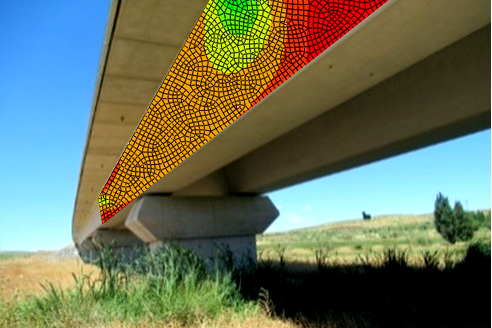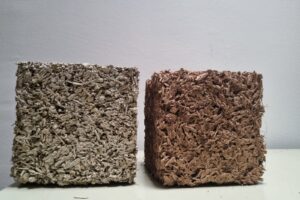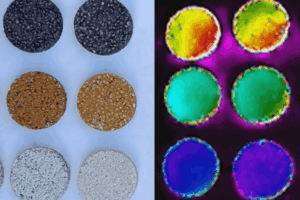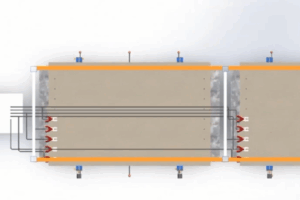
Internet of Food & Farm: The Internet of Things applied to agriculture and livestock farming
April 28, 2021
An innovative open data platform for Barcelona
April 29, 2021The UPC Department of Civil and Environmental Engineering is leading one of the ‘workpackages’ of the European project ASHVIN (Assistants for Healthy, Safe, and Productive Virtual Design, Operation & Maintenance using a Digital Twin), an initiative whose objective is to use digital twins technology to make the European construction industry more efficient, more reliable and safer.
Digital twins are virtual copies of objects or processes that simulate the behaviour of their real counterparts in real-time. This innovative technology has diverse benefits, as it can be used to reproduce, experiment with and predict situations in a safe environment to improve efficacy..
The aim of ASHVIN is to improve productivity, reduce costs and guarantee safe working conditions in the European construction industry. The proposal is based on the creation of a European standard of digital twins, an open code digital twin platform that integrates image processing and internet of things technologies and a series of tools and procedures that ensure these improvements in productivity, cost and safety.

Monitor data in real time
The platform that is developed will create a digital representation of the infrastructure to be constructed that will enable digital data to be gathered in real time, before, during and after construction, to continuously supervise any change that occurs in the environment or in the infrastructure. The proposal is based on a concept that is talked about a lot in our sector: digitalization of civil engineering and Construction 4.0. ASHVIN will have three basic pillars: design, construction and maintenance of the infrastructure.In Spain, one of the infrastructures that is being tested is one of the bridges on the high speed railway Plasencia-Badajoz (AVE) of ADIF (as shown in the image). The proposal is also being implemented in various buildings in Barcelona and in infrastructure around Europe.
The ASHVIN consortium, led by TU Berlin, is comprised of 14 members. These include SMEs, industry, universities and research centres from nine European countries: Germany, the Netherlands, Greece, Serbia, Austria, Spain, Croatia, Poland and Sweden. All have extensive experience in the management of construction and engineering, digital twin technology, the internet of things and data security and privacy.
The project has received funding from the European Commission’s research and innovation programme Horizon 2020, and is in line with the objectives of the European Green Deal, a packet of measures promoted by the European Commission to achieve a sustainable economy that would be the first in the world to attain carbon neutrality in 2050. The European Green Deal is designed to promote efficient use of resources by shifting to a clean, circular economy, restoring biodiversity and reducing pollution.
Technology
Sector
You want to know more?
Related Projects
SATE-VEG: A system for energy renovation of buildings that helps reduce the urban heat island effect
Researchers from the Architecture, Energy and Environment (AiEM) group at the Universitat Politècnica de Catalunya - BarcelonaTech (UPC) have developed SATE-VEG, an external thermal insulation system with a vegetal coating that offers seasonally adaptive thermal behaviour, enhances urban biodiversity and promotes positive health effects. The system is made from organic materials, requires low maintenance and consumes minimal water.- A research team from the Interdisciplinary Group on Building Science and Technology (GICITED) at the Universitat Politècnica de Catalunya – BarcelonaTech (UPC) is leading the BioSAFE project, which aims to develop sustainable building envelopes —mainly façades— designed according to sustainability, comfort and safety criteria, with particular attention to their acoustic behaviour and fire performance.
- The Construction Materials and Roads (MATCAR) research group at the Universitat Politècnica de Catalunya - BarcelonaTech (UPC) has carried out the RELUM project with the aim of researching and developing innovative solutions to help prevent global warming, through the design of sustainable pavements with reflective and photoluminescent properties, in collaboration with the company Sorigué.
- The Structural and Materials Technology (ATEM) research group at the Universitat Politècnica de Catalunya - BarcelonaTech (UPC) is participating, in collaboration with the Universitat de les Illes Balears (UIB), in the ReINfoRCed project, which aims to promote the extension of the service life of reinforced concrete structures affected by corrosion.




